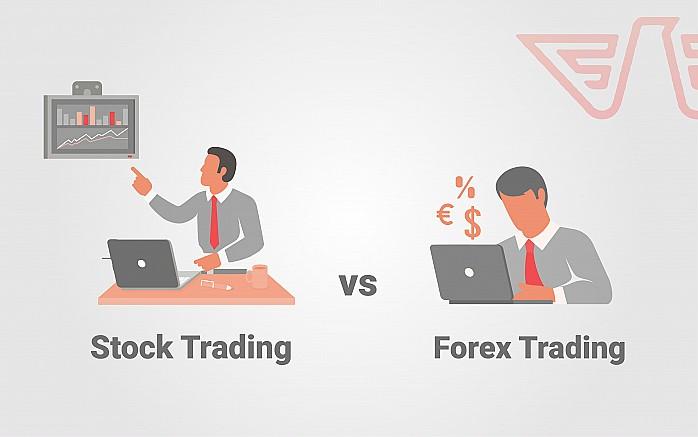A diversified portfolio is one where you trade several assets with uncorrelated returns. You want to make sure that when there is an adverse market change, you consider in your trading strategy how you may be able to offset the losses you might experience. One of the best ways to make sure that your portfolio is diversified is to hold different types of trading assets. One of the best assets to add to a stock portfolio is forex. The returns that you would expect in the forex market do not move in tandem with the changes in the stock market. The forex market is one of the most liquid and widely traded capital markets and provides a welcome addition to any portfolio.
What is Forex Trading?
Most of us are familiar with stock trading, but many want to know what is forex trading? Forex trading is the simultaneous purchase and sale of two or more currencies. The security that is traded is called a currency pair. The price is the exchange rate and is calculated by dividing one currency by another. The exchange rate that is the most widely traded is called the spot rate. The spot rate reflects the exchange rate in two business days. You must enter the forward market if you plan to transact the forex market beyond the spot rate. The forward rate is calculated by adding forward points to the spot rate. Forward points are calculated by adding or subtracting the interest rate differential between the two countries’ interest rates.
There are thousands of different combinations of currencies that can be traded. The most commonly transacted currency pairs are the major currency pairs. To be defined as a major currency pair, one of the two currencies needs to be the U.S. dollar. The currencies that make up the majors other than the U.S. dollar are the Euro, the Japanese Yen, the British Pound, the Swiss Franc, the Australian Dollar, and the Canadian Dollar.
What is Stock Trading?
When people think of stock trading, they generally think of individual stocks like Apple or Microsoft. Stock trading consists of shares and indices that are composed of shares. Some of the more popular indexes are the S&P 500 index, the Dow Industrial Index, The FTSE 100 index, the German Dax Index, the Japanese Nikkei, and the Nasdaq 100. Indices are created by size and the scope of the company. For example, many technology stocks are part of the Nasdaq.
How do You Trade Stocks?
Stock trading is familiar to most people, especially retirement accounts. Most of the performed stock trading is handled using a buy-and-hold strategy. Most strategies are based on holding stocks for years in retirement accounts. Despite this tendency, several different trading strategies are geared to individual stock trading and index trading. Stock trading strategies are usually a combination of fundamental and technical analysis. Fundamental analysis uses both macroeconomic analysis and microanalysis, which focuses on the earnings and revenue of a company. Most fundamental analysis is concerned with what will happen instead of what has happened already.
How are Forex Trading and Stock Trading Similar?
There are several ways to trade stocks and forex that are similar. Most of the concepts are macro-oriented. For example, in both forex and stock trading, market participants focus on levels of interest rates and where interest rates are going. In forex trading, this is important as rising rates make a currency more attractive relative to another currency. When you evaluate stocks, you look at the future discounted cash flows. Higher interest rates increase the discounting factor for stocks. The upshot is that higher rates usually negatively impact discounted cash flows and, therefore, might negatively impact the returns of stocks.
Both forex traders and stock traders often use technical analysis to make trading decisions. Technical analysis is the study of past price movements to determine the future returns of a forex pair or stock price. There are several categories of technical analysis, including support and resistance, patterns, and chart studies.
Where Can you Trade Stocks and Forex?
There are several ways that you can combine trading stocks and forex. Many people also use different methods. Stockbrokers usually provide access to stock exchanges where an individual can trade stocks and indices. Indices are typically traded via an exchange-traded fund (ETF). ETFs are stock-like products that hold several types of assets that could make up an index. For example, the SPY Spider S&P 500 Trust holds all of the stocks in the S&P 500 index and tracks the index’s movements.
An alternative that is often used is Contracts for Differences (CFDs). A CFD is a financial product that tracks the movements of an underlying asset. CFD brokers provide products to their clients that include forex, indices, and individual stocks. There are some benefits to having all of your eggs in one basket where you can evaluate both your forex and stock trading using one broker. There are some netting benefits where losses from forex trading can be offset by gains in your stock trading that make using a CFD broker beneficial. While your stock broker might not have specific currency pairs for you to trade, they will likely have access to ETFs that hold a basket of currencies.
The Bottom Line
Stock trading and forex trading have some similarities and plenty of differences. While you follow the price of a stock or index, you generally follow the exchange rate of a currency pair when you trade the forex markets. One of the benefits of trading is that stocks and forex pairs are usually uncorrelated. That means the returns are not similar, and if there is an adverse move in a market, one asset could offset the losses.
Stocks can be traded at a stockbroker or with a CFD broker, which allows you to invest in price differences in both directions of an underlying asset without the need to purchase it. Forex pairs can be traded at a forex broker or a CFD broker. There are some benefits of trading with one broker, as the netting of gains and losses can reduce the amount of capital you need in your account. Stocks and forex pairs are sensitive to interest rates, making the macro-environment an important concept that should be followed when trading either forex or stocks.
Tradersdna is a leading digital and social media platform for traders and investors. Tradersdna offers premiere resources for trading and investing education, digital resources for personal finance, market analysis and free trading guides. More about TradersDNA Features: What Does It Take to Become an Aggressive Trader? | Everything You Need to Know About White Label Trading Software | Advantages of Automated Forex Trading










































